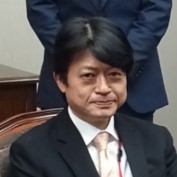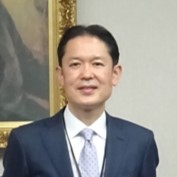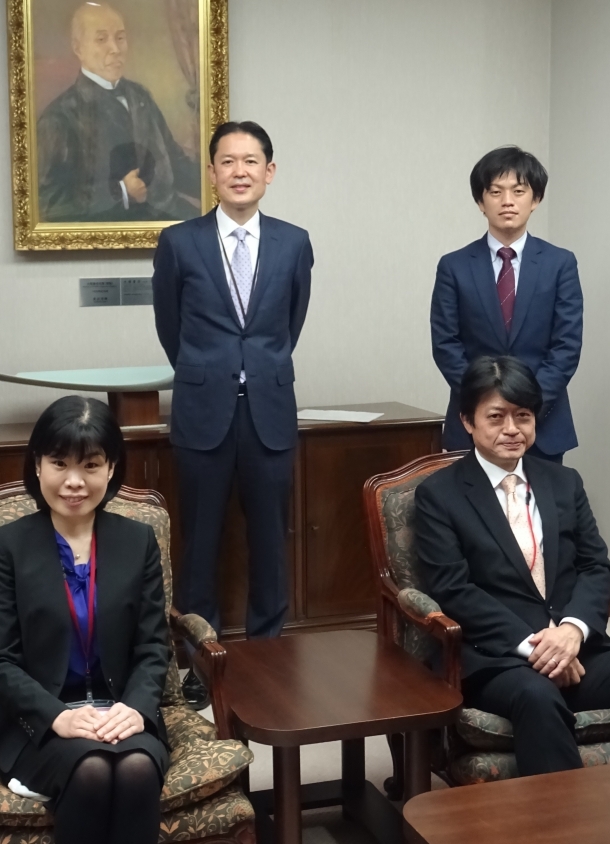On Nov. 19, 2020, we held a roundtable discussion regarding the above topic. The following is just a glimpse of what was discussed, so please visit our website for the whole discussion.
Participants
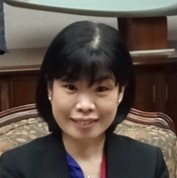 |
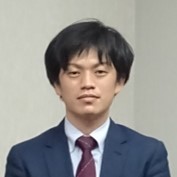 |
| Hiroko Soneda (Graduate School of Business and Finance) Took paternity leave in 2010 and 2012. |
Yuta Kumazaki (Global Education Center) Took paternity leave in 2019. |
Part1.Thinking About Paternity Leave for Male Staff
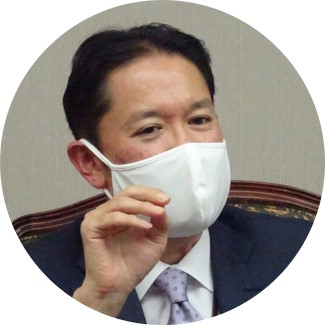 Okubo: I was the first male staff member to take paternity leave. The experience of raising a child is irreplaceable, and I knew I would miss out on the experience if I did not take advantage of the timing, so I took a four-month leave. When I returned to my job, I found a newfound sense of motivation, although this was not necessarily related to my leave. There were times that were tough, but raising a child is a joyful experience, and now that I look back, I wish I would have taken more time off. As a manager, I am responsible for managing people who are in various standings, and I feel my experience is being put to good use. It is a manager’s job to create an environment where people, who are juggling various circumstances —— including childrearing as well as taking care of elderly parents, etc. —— can best demonstrate their abilities through their work. I believe my own experience helped me lay a foundation for understanding these various situations.
Okubo: I was the first male staff member to take paternity leave. The experience of raising a child is irreplaceable, and I knew I would miss out on the experience if I did not take advantage of the timing, so I took a four-month leave. When I returned to my job, I found a newfound sense of motivation, although this was not necessarily related to my leave. There were times that were tough, but raising a child is a joyful experience, and now that I look back, I wish I would have taken more time off. As a manager, I am responsible for managing people who are in various standings, and I feel my experience is being put to good use. It is a manager’s job to create an environment where people, who are juggling various circumstances —— including childrearing as well as taking care of elderly parents, etc. —— can best demonstrate their abilities through their work. I believe my own experience helped me lay a foundation for understanding these various situations.
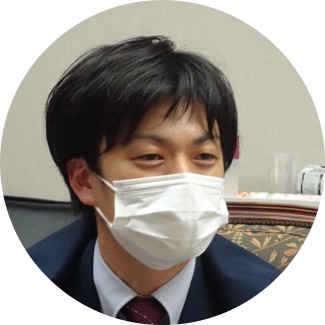 kumazaki: In my workplace, multiple people oversaw a single task and there were regular rotations, so it was easy to ask others for help. Although I had fun during my two months of parental leave, it was a lot tougher than I imagined, having to prepare every meal, being a playtime companion, and putting them to bed. It is hard to express in words, but it is a feeling you cannot understand unless you experience it for yourself. I understood how tough it was, and after I returned to my job, I tried to go home as soon as possible so that I could alleviate some of the burden placed on my wife. Using my limited amount of time, I was able to optimistically engage with my work more efficiently and rationally. In turn, I feel I have become more aware of the purpose of my work and am able to better discern what is and is not necessary.
kumazaki: In my workplace, multiple people oversaw a single task and there were regular rotations, so it was easy to ask others for help. Although I had fun during my two months of parental leave, it was a lot tougher than I imagined, having to prepare every meal, being a playtime companion, and putting them to bed. It is hard to express in words, but it is a feeling you cannot understand unless you experience it for yourself. I understood how tough it was, and after I returned to my job, I tried to go home as soon as possible so that I could alleviate some of the burden placed on my wife. Using my limited amount of time, I was able to optimistically engage with my work more efficiently and rationally. In turn, I feel I have become more aware of the purpose of my work and am able to better discern what is and is not necessary.
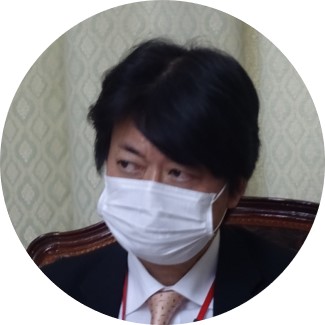 Inoue:Parents raise their children, but it is also true that, in many ways, children raise their parents. When they returned to their job, I realized something big had changed within them. Through their experiences, they came to understand the struggles of women and the worries of students. You might be told to “give it your best” when you participate in overseas training, but not when you take parental leave, even though both are instances of “growing and coming back.” You must create an organization where multiple people oversee tasks and where staff work as a team and cover for each other. That is probably the most important job of a manager.
Inoue:Parents raise their children, but it is also true that, in many ways, children raise their parents. When they returned to their job, I realized something big had changed within them. Through their experiences, they came to understand the struggles of women and the worries of students. You might be told to “give it your best” when you participate in overseas training, but not when you take parental leave, even though both are instances of “growing and coming back.” You must create an organization where multiple people oversee tasks and where staff work as a team and cover for each other. That is probably the most important job of a manager.
Part2.Thinking About the Career Development of Female Staff
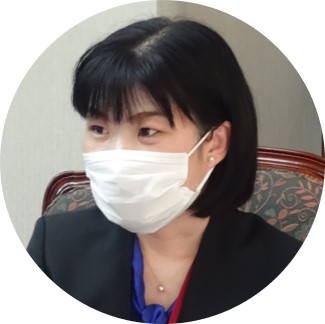 Soneda: Someone may aspire to become a manager because they were inspired by their own boss or a manager that took care of them. I think the feeling of wanting to aspire to be like the person, or feeling that I grew while working under the person, serves as the inspiration for wanting to pass something on to next generation and give back to the University. Becoming a manager is not the end; from there, how you contribute to the workplace and get involved is important. Some might say that “you cannot do big things unless you climb the ranks,” but that should not necessarily be our goal. I think I should try to be the kind of staff member that others admire and aspire to be.
Soneda: Someone may aspire to become a manager because they were inspired by their own boss or a manager that took care of them. I think the feeling of wanting to aspire to be like the person, or feeling that I grew while working under the person, serves as the inspiration for wanting to pass something on to next generation and give back to the University. Becoming a manager is not the end; from there, how you contribute to the workplace and get involved is important. Some might say that “you cannot do big things unless you climb the ranks,” but that should not necessarily be our goal. I think I should try to be the kind of staff member that others admire and aspire to be.
 Inoue: Managers are simply there to serve a role. Before you think about wanting to change the University in a certain way, or providing students with certain positive experiences, it is important to think about what positions can accomplish your wish. If you happen to want to become a manager, then you should aspire to be one, but if you prefer to be in the field, there is no need to become a manager. I hope we can establish an environment that welcomes diversity and allows individual fulfillment, and as a result, leads to an increase in women who have the abilities and desire to become managers.
Inoue: Managers are simply there to serve a role. Before you think about wanting to change the University in a certain way, or providing students with certain positive experiences, it is important to think about what positions can accomplish your wish. If you happen to want to become a manager, then you should aspire to be one, but if you prefer to be in the field, there is no need to become a manager. I hope we can establish an environment that welcomes diversity and allows individual fulfillment, and as a result, leads to an increase in women who have the abilities and desire to become managers.

